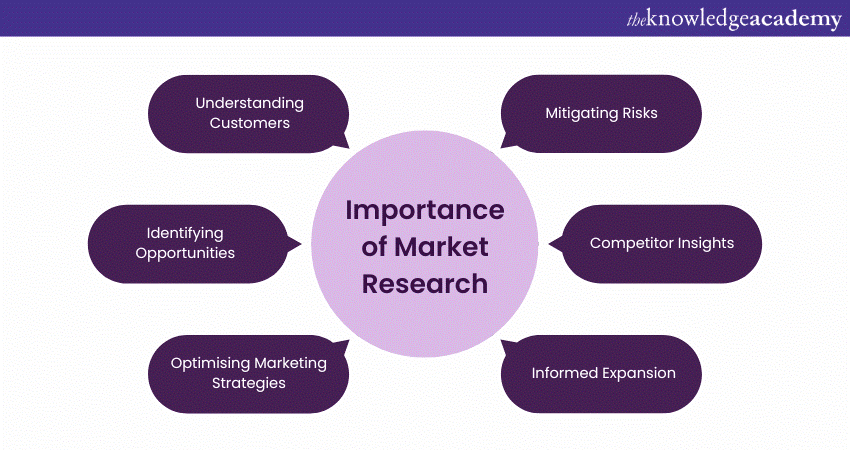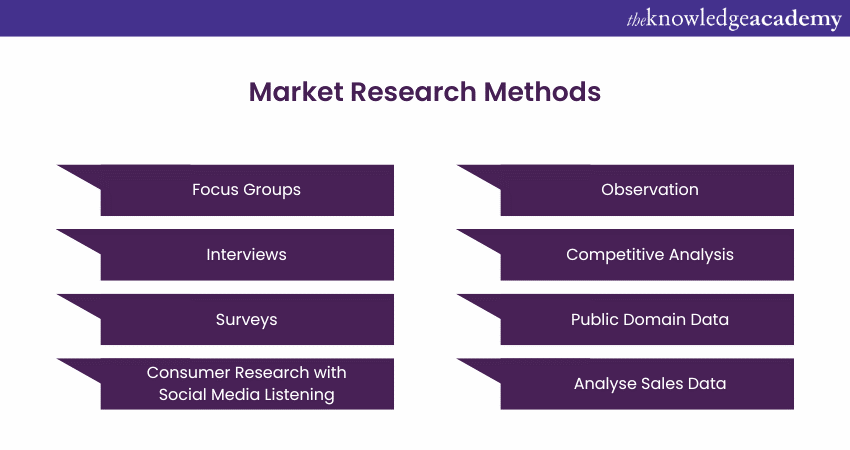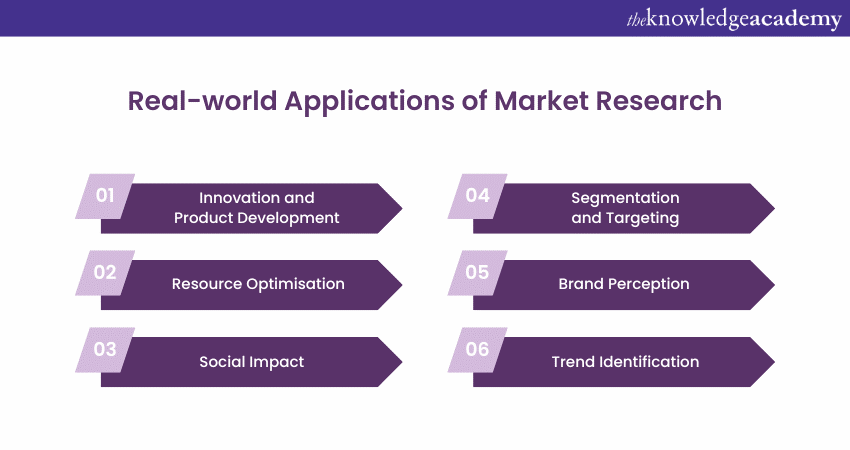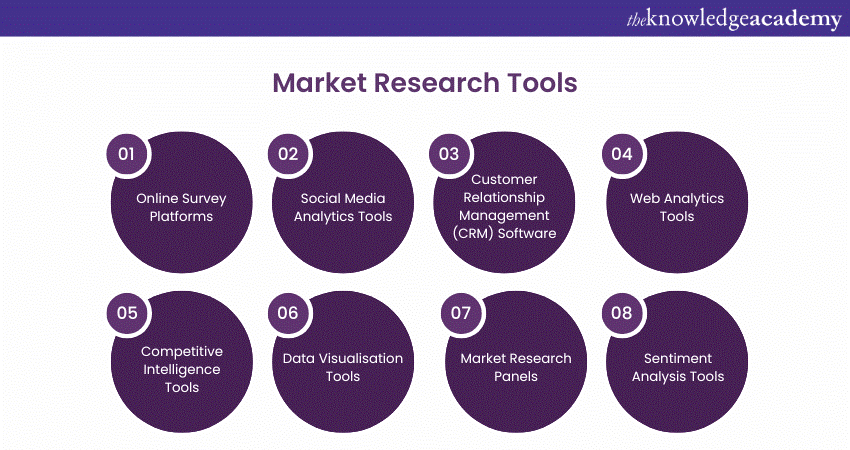We may not have the course you’re looking for. If you enquire or give us a call on 01344203999 and speak to our training experts, we may still be able to help with your training requirements.
Training Outcomes Within Your Budget!
We ensure quality, budget-alignment, and timely delivery by our expert instructors.
Have you ever wondered, “What is Market Research?” It’s like having a roadmap for the business world, offering clear visions of customer desires and market shifts. Market Research is the detective work behind successful brands, uncovering clues and piecing together the consumer puzzle. It’s the key to unlocking what makes customers tick, shaping products that they’ll love, and sparking marketing messages that capture hearts.
Market Research isn’t just about collecting data; it’s about weaving that data into strategies that win markets. Ready to decode the secrets of success? Let’s dive into the captivating world of Market Research!
Table of Contents
1) Understanding What is Market Research
2) Importance of Market Research
3) Types of Market Research
4) Market Research Methods
5) Real-world Applications of Market Research
6) Challenges in Market Research
7) Market Research Tools
8) Conclusion
Understanding What is Market Research
Market Research is a careful and organised way of collecting, analysing, and understanding information about a particular market or industry. Its main goal is to help organisations learn about their target audience, competitors, and the market they work in.
With clear goals, organisations can choose research methods, such as surveys, interviews, focus groups, observations, or a mix of these. These methods gather both detailed and numerical data, giving a clear picture of the market.
Importance of Market Research
Here are some simple yet crucial reasons why Market Research matters:

Understanding Customers
Market Research makes it easier for business organisations to have a real understanding of their consumers, their buying habits, and anything that may interest them. Using such knowledge, firms can enhance their goods and services in a way that will ensure satisfaction of the customer needs and hence improve the loyalty of the customers.
Identifying Opportunities
Market Research helps consumer-facing organisations to understand missing opportunities and the trends in the market. It helps them capture new opportunities in the market and create new strategies that would fit the consumer requirements, thus expanding the market share and sales.
Optimising Marketing Strategies
Market Research helps in the formulation of efficient promotion strategies by identifying the channels, means, and situations to find potential customers. This knowledge aids marketers in crafting persuasive messages and identifying the suitable channel of communication, thus achieving a high level of effectiveness of marketing communication.
Mitigating Risks
Businesses need to minimise uncertainty and gain better knowledge about their consumers and competitors through Market Research data. It limits the chances of going wrong when developing new products or venturing into new segments since decisions are made in reference to facts rather than educated guesses.
Competitor Insights
Market Research provides insights into competitors' strengths and weaknesses. This information allows businesses to change their strategies, differentiate their offerings, and develop a competitive edge in the market.
Informed Expansion
Before entering new markets, businesses can conduct Market Research to understand local preferences and cultural nuances. This insight informs strategic decisions, minimises risks, and increases the chances of successful expansion.
Types of Market Research
There are two types of Market Research: primary and secondary research. These methods offer distinct approaches to gathering and analysing information.
Primary Research
Primary research includes collecting new data directly from sources through methods such as surveys, interviews, and focus groups. This type of research provides firsthand insights and specific data tailored to a particular need or question. It is highly valuable for detailed and targeted analysis, allowing businesses to gain an understanding of their target audience and market dynamics.
Secondary Research
Secondary research involves analysing existing data that has already been collected by others. This can include reports, studies, and statistical data from government agencies, industry associations, and other organisations. Secondary research is often more cost-effective and quicker to access than primary research. It provides a detailed understanding of market trends and general information.
Market Research Methods
Market Research is essential for understanding consumer needs, preferences, and market dynamics. Here are some of them:

a) Focus Groups: Focus groups involve gathering a small, diverse group of people to discuss a product, service, or concept in-depth. This method allows researchers to gather rich, qualitative data and insights based on participants' interactions and discussions.
b) Interviews: Interviews are one-on-one conversations between a researcher and a participant. They can be structured, semi-structured, or unstructured, providing detailed qualitative data about individual perspectives, experiences, and opinions.
c) Surveys: Surveys are a quantitative research method involving structured questionnaires to collect data from a large number of respondents. They can be conducted online, via phone, or in person and are useful for gathering broad, generalisable insights.
d) Consumer Research with Social Media Listening: It involves monitoring social media platforms to gather insights about consumer opinions, trends, and behaviours. This method helps researchers understand public sentiment and identify emerging trends in real time.
e) Observation: Observation involves watching and recording Consumer Behaviours in natural settings. This method provides valuable insights into actual behaviours and interactions with products or services.
f) Competitive Analysis: Competitive analysis involves examining competitors' products, services, marketing strategies, and market positions. This method helps businesses understand their competitive landscape, find opportunities and threats, and develop effective strategies.
g) Public Domain Data: It includes information available from government reports, industry publications, academic research, and other publicly accessible sources. This data is valuable for understanding market trends, demographics, and economic conditions.
h) Analyse Sales Data: Analysing sales data involves examining a company's sales records to identify trends, patterns, and performance metrics. This method provides insights into consumer preferences, product performance, and market dynamics, helping inform strategic decisions.
Learn to create interesting content with our Content Marketing Course – join today!
Real-world Applications of Market Research
Market Research isn't just a theoretical concept – it's a practical tool with a wide range of applications across various industries. Here's a detailed exploration of how Market Research is applied in the real world:

a) Innovation and Product Development: Applied research, a type of research, is crucial for driving innovation. It involves using existing knowledge to address practical issues, leading to the development of new products, services, or Market Research Processes that improve existing practices.
b) Resource Optimisation: Market Research helps companies optimise their resources by focusing efforts on promising opportunities and avoiding areas with less potential for success.
c) Social Impact: Market Research can also contribute to societal benefits by addressing issues such as healthcare improvements, environmental sustainability, and technological advancements.
d) Segmentation and Targeting: Statistical analysis of Market Research data can reveal specific segments of the population that are more likely to purchase certain products. It enables companies to customise their offerings and marketing efforts more effectively.
e) Brand Perception: It is crucial to understand how consumers perceive a brand. It can reveal brand associations, levels of brand awareness, and attitudes towards the brand. This information helps businesses shape their branding strategies, improve brand positioning, and monitor brand health over time.
f) Trend Identification: It plays a vital role in identifying emerging trends within an industry or market. By analysing data over time, businesses can spot patterns and predict future movements. This allows companies to stay ahead of their competitors by adapting to trends early and capitalising on new market opportunities.
Challenges in Market Research
While Market Research is a powerful tool, it comes with its own set of challenges that researchers and businesses must navigate. Here' are some of the key challenges faced in the Market Research:
a) Bias in Data Collection: Biases might arise from leading survey questions, sample selection that isn't representative, or the researcher's assumptions. Ensuring a neutral and unbiased approach is crucial to maintaining the integrity of the collected data.
b) Data Accuracy: The reliability of Market Research hinges on accurate data collection. Errors can occur during data entry, survey responses, or measurements. These inaccuracies can lead to flawed conclusions and misguided decisions. Rigorous validation processes and double-checking data can help mitigate this challenge.
c) Rapidly Changing Markets: In fast-paced industries, trends can shift swiftly, rendering data outdated. Market Research that becomes obsolete too quickly may result in strategies that are misaligned with current market dynamics. Staying current with up-to-date data and regular research updates is essential in these dynamic sectors.
d) Sample Size and Representativeness: The size and composition of the sample used for research can significantly impact its validity. A sample that's too small might not accurately reflect the entire target population, leading to unreliable conclusions.
e) Data Privacy and Ethics: Collecting and using personal data raises ethical concerns, especially in an era of privacy awareness. Striking a balance between gathering necessary information and respecting participant privacy is essential.
f) Interpretation of Qualitative Data: Qualitative data, gathered through techniques like interviews and focus groups, can be challenging to analyse objectively. Interpretation can be subjective and influenced by researchers' biases.
Market Research Tools
These tools help businesses make decisions and develop effective strategies. Here are some of them:

Online Survey Platforms
Online survey platforms like SurveyMonkey, Google Forms, and Qualtrics allow researchers to design and distribute surveys easily. These platforms offer various question types, customisation options, and data analysis features to gather and interpret quantitative data efficiently.
Social Media Analytics Tools
Tools like Hootsuite, Brandwatch, and Sprout Social help monitor and analyse social media interactions. These tools provide insights into consumer sentiment, engagement metrics, and trending topics, enabling businesses to understand their online presence and audience better.
Customer Relationship Management (CRM) Software
CRM software like Salesforce, HubSpot, and Zoho CRM helps manage customer interactions and data throughout the customer lifecycle. These tools give valuable insights into customer behaviour, preferences, and purchasing patterns.
Web Analytics Tools
Tools like Google Analytics and Adobe Analytics analyse website traffic, user behaviour, and conversion rates. These tools help businesses understand how visitors interact with their websites and find areas for improvement.
Competitive Intelligence Tools
Competitive intelligence tools like SEMrush, SimilarWeb, and Ahrefs provide insights into competitors' strategies, website performance, and market positioning. These tools help businesses identify opportunities and threats in the competitive landscape.
Data Visualisation Tools
Data visualisation tools like Tableau, Power BI, and D3.js help transform raw data into interactive and visual representations. These tools make it easier to find trends, patterns, and insights, facilitating better decision-making.
Market Research Panels
Market research panels like Ipsos, Nielsen, and Toluna provide access to a pre-recruited group of respondents who participate in various research studies. These panels offer reliable and diverse data for market analysis.
Sentiment Analysis Tools
Sentiment analysis tools like Lexalytics, MonkeyLearn, and IBM Watson analyse text data to determine the sentiment behind consumer opinions. These tools help businesses understand public perception and sentiment trends.
Learn essential marketing principles for business growth with our Introduction to Marketing Training – join today!
Conclusion
For any organisation to be successful, it is essential to grasp the concept of ‘What is Market Research?’. Understanding its significance, categories, techniques, uses, and tools can help businesses learn more about market trends and customers’ actions. However, Market Research plays an important role in decision making, management of strategies and staying on top of the competition in today’s world.
Discover the in-depth analysis behind buying decisions - join our Marketing Courses today and gain a competitive edge!
Frequently Asked Questions

The Five W’s of Marketing Research include who is to be surveyed, what is to be said to and asked of the consumers, where and when the research is to be conducted, and why the research is being conducted. These questions ensure comprehensive and focused data collection for actionable insights.

The six types of questions are multiple-choice, rating scale, Likert scale, open-ended, demographic, and ranking questions. Each type has a specific purpose in gathering quantitative or qualitative data: to understand respondents' opinions, behaviours, and characteristics.

The Knowledge Academy takes global learning to new heights, offering over 30,000 online courses across 490+ locations in 220 countries. This expansive reach ensures accessibility and convenience for learners worldwide.
Alongside our diverse Online Course Catalogue, encompassing 17 major categories, we go the extra mile by providing a plethora of free educational Online Resources like News updates, Blogs, videos, webinars, and interview questions. Tailoring learning experiences further, professionals can maximise value with customisable Course Bundles of TKA.

The Knowledge Academy’s Knowledge Pass, a prepaid voucher, adds another layer of flexibility, allowing course bookings over a 12-month period. Join us on a journey where education knows no bounds.

The Knowledge Academy offers various Marketing Courses, including the Content Marketing Course, Marketing Research Training, and Strategic Marketing Course. These courses cater to different skill levels, providing comprehensive insights into Marketing Job Description.
Our Digital Marketing Blogs cover a range of topics related to Marketing Research, offering valuable resources, best practices, and industry insights. Whether you are a beginner or looking to advance your marketing skills, The Knowledge Academy's diverse courses and informative blogs have got you covered.
Upcoming Digital Marketing Resources Batches & Dates
Date
 Digital Marketing Course
Digital Marketing Course
Fri 20th Sep 2024
Fri 15th Nov 2024







 Top Rated Course
Top Rated Course



 If you wish to make any changes to your course, please
If you wish to make any changes to your course, please


